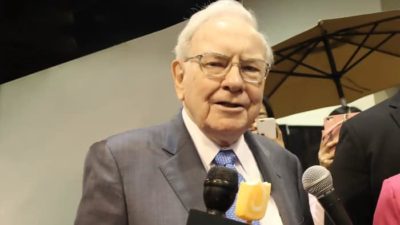Would you expect an ASX healthcare share that grew its revenue and earnings by more than 15% in FY23 to fall 24%? Does a 2% reduction in gross margins justify a share price decline ten times greater? Or, could this be another time investors responded more out of fear than rational thought?
The irrational behaviours of investors and the share market at large can produce sensational opportunities to invest in exceptional companies. As humans, we are evolutionarily programmed to assign more importance to negatives than positives — manifesting as neck-snapping moves in share prices.
It takes a level head, one that switches off the emotional circuitry, to analyse and recognise an overreaction in the market. The challenge is deciphering what the business is trying to whisper to you while in a room full of emotionally driven market participants shouting at the top of their lungs.
In my opinion, Resmed Inc (ASX: RMD) is a company whose share price has been caught up recently in the fearful screeches of the market.
Fears of a new competitor
On 4 August, Resmed released its full-year FY2023 results to the market. An unceremonious 9.3% dumping followed as analysts labelled it a 'miss' on expectations — the 55.8% gross margin, falling 2% from the prior corresponding period, being a prime source of disappointment.
However, I'd guess investors are more worried about complete industry disruption than a slight miss in a single result. What would create such a stir? Well, I'm sure you have now heard of the 'miracle drug' known as Ozempic (and its other forms: Wegovy, Mounjaro, etc), all using the same medicine, semaglutide.
Initially used for the treatment of diabetes, semaglutide is now sold as a non-invasive method of managing obesity. Considering there is a significant correlation between obesity and sleep apnea, many are pondering whether the drug could reduce the market for Resmed's medical devices.
Short sellers have latched onto this, driving the number of shorted shares in this ASX healthcare company up by more than 230% since 25 May 2023.
Resmed CEO Mick Farrell was asked about the anticipated effect these drugs will have on the business during the company's Q4 call. In response, Farrell outlined possible shortcomings of glucagon-like peptides (GLPs), stating:
I think there are three factors that'll mitigate GLPs in the space. One is cost, two is adherence, and three is side effects.
The potential undermining of the need for continuous positive airway pressure (CPAP) has likely induced immense fear in shareholders.
In some cases, this concern has possibly been a determining factor in letting go of Resmed shares, despite there not being any clear evidence yet that semaglutide will have detrimental effects on Resmed's business.
The case for considering this ASX healthcare share
Fundamentally, Resmed is an extremely high-quality company. This is a business employing the tried and true razor and blade business model. This translates into high margins, being further supported by a growing software segment.
To put it all into perspective, the last time the market capitalisation of this ASX healthcare share was this low was in January 2020 — three years ago. Furthermore, Resmed hasn't traded on a price-to-earnings (P/E) ratio of around 28 since December 2017, as shown below.
RMD chart by TradingView
Yet, we're looking at a company that increased revenue by 18% in FY23 versus 13.2% in FY18. A company boasting a net profit margin of 21.3% in FY23 versus 13.2% in FY18. And this, a company that dialled up its earnings by 15.2% in the latest financial year, compared to a 7.8% decline in FY18.
In many ways, Resmed is now a far higher quality business than it was back then.
For that reason, I think this ASX healthcare share could now be a buying opportunity.









